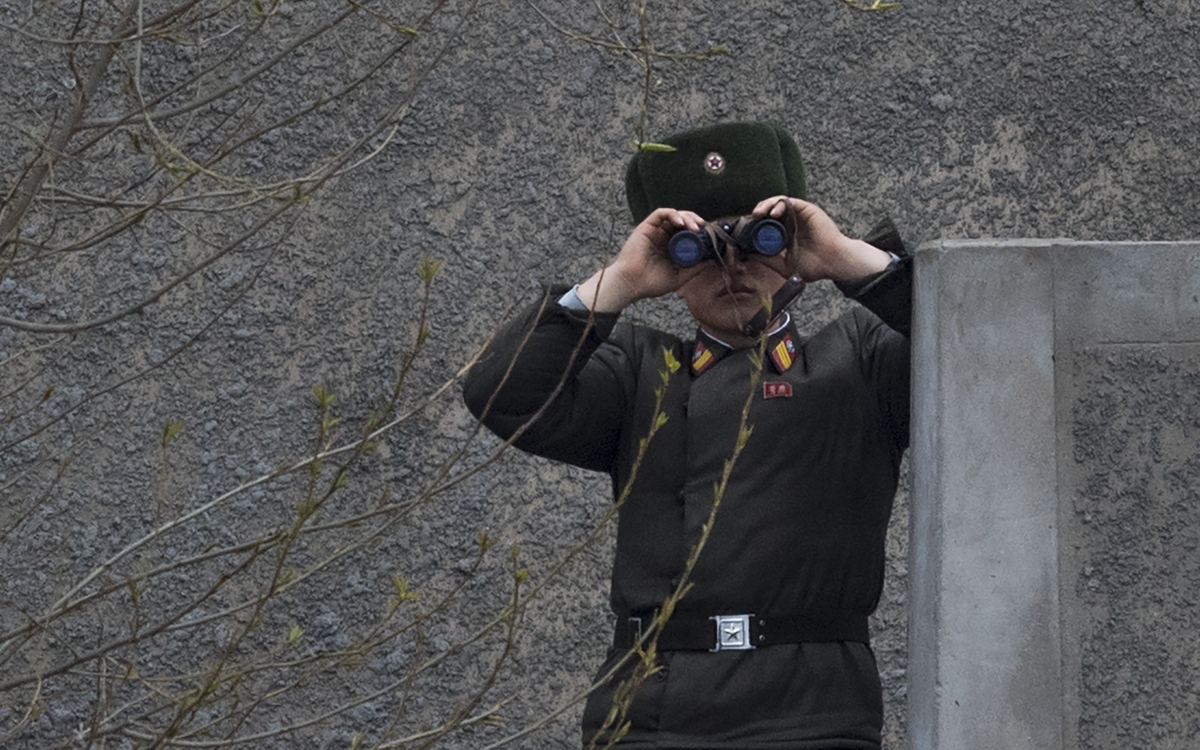
A North Korean soldier looks across the Yalu river near Sinuiju, opposite the Chinese border city of Dandong in April 2017. Johannes Eisele/AFP via Getty Images hide caption

A North Korean soldier looks across the Yalu river near Sinuiju, opposite the Chinese border city of Dandong in April 2017.
Johannes Eisele/AFP via Getty ImagesWhen Kim Hyun-woo stepped into the NPR studios in Washington, he was doing something that in his past life would have gotten him killed - speaking frankly with an American journalist.
That's because Mr. Kim spent 17 years working for North Korean intelligence at the Ministry of State Security.
He defected in 2014 and lives today in South Korea.
He offered a rare glimpse behind the curtain of one of the most isolated countries in the world.
He spoke with NPR's Mary Louise Kelly in an exclusive interview.
Email us at
This episode was produced by Karen Zamora and Gus Contreras. It was edited by Jeanette Woods and Sarah Handel. Our executive producer is Sami Yenigun.

 Live Radio
Live Radio